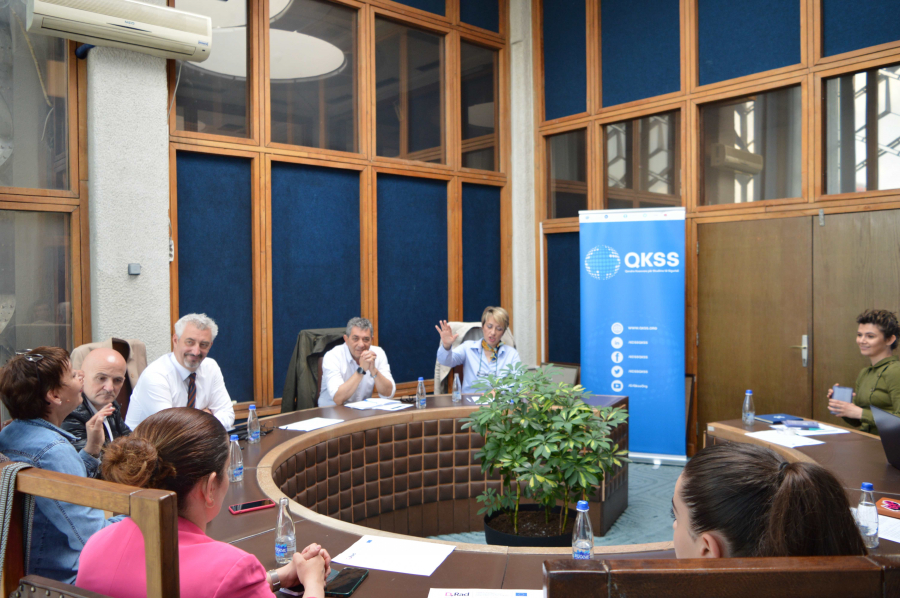25/05/2023

The Kosovar Center for Security Studies (KCSS) organized today an interactive workshop titled "Transforming the University Campus Space in Prishtina through a Social Perspective" within the framework of the DRAD project.
KCSS is currently implementing the project activity titled "Spatial Aspects of De-radicalization Processes," aimed at identifying and analyzing how spatial aspects and inclusion/exclusion from public spaces influence the processes of (de)radicalization of individuals/groups in the city - in this case, in the city of Prishtina. The University of Prishtina campus was selected as a case study due to its continuous transformation, its utilization by different groups for various purposes, and the dynamics that accompany the presence of the Serbian Orthodox Church, which is located within the campus and was constructed during the regime of Slobodan Milosevic.
The aim of the workshop was to bring together different stakeholders, including public institutions, municipal authorities, professors from various departments at the University of Prishtina, students, and residents of surrounding neighborhoods, to collectively build a picture of developments and dynamics in this part of the university campus. The objective was to identify the main challenges in utilizing this space by different stakeholders and to re-imagine how this space could be transformed to better serve all citizens, without distinction.
The workshop was attended by representatives from the Public Services Directorate in the Municipality of Prishtina, representatives from the Division of Planning and Cooperation in the Ministry of Environment, Spatial Planning and Infrastructure, professors from the departments of architecture and spatial planning, residents and business owners from the neighborhoods around the university campus, as well as students who have been involved in academic work related to this public space.